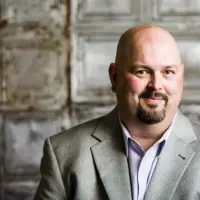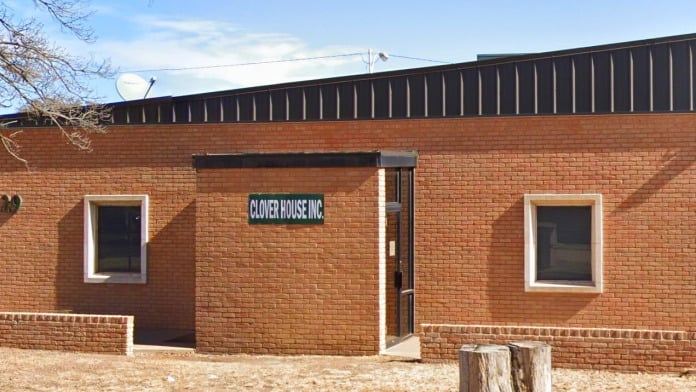About Fire Sky Ranch
The Fire Sky Ranch residential treatment program offers a multi-faceted treatment approach broken up into life skills education, recovery, recreation, and clinical services. The residential program is operated in a home-like environment with supportive staff supervision.
Those enrolled will be counseled by expert therapists holding a minimum of a master’s degree. This residential program also promotes peer and community support and offers supplemental substance abuse recovery services like medication management, psychiatric evaluations, and case management. Numerous recreational activities, including weekly outings, are also offered, as are 12 Step and professional programs.
In terms of insurance, Fire Sky Ranch is known to accept Blue Cross Blue Shield, Aetna, Cigna, United Healthcare, First Care, and Magellan Health. However, to ensure coverage it’s best to confirm with the rehab and your insurer. Your insurer can also confirm any applicable out-of-network benefits.
Latest Reviews
Rehab Score
Gallery
Accepted Insurance
Other Forms of Payment
Self-pay involves paying for treatment out of your own pocket. You can use savings or credit, get a personal loan, or receive help from family and friends to fund your treatment. If you don't have insurance or your insurance plan doesn't cover a specific program, self-pay can help ensure you still get the care you need.
Private insurance refers to any kind of healthcare coverage that isn't from the state or federal government. This includes individual and family plans offered by an employer or purchased from the Insurance Marketplace. Every plan will have different requirements and out of pocket costs so be sure to get the full details before you start treatment.
Addiction Treatments
Levels of Care
Intensive Outpatient Treatment is a less intensive level of care that includes treatment 3 days of the week. Like Partial Hospitalization, clients can live at home, and continue to work and go to school while attending treatment in the evenings. Aspire also has Sober Living facilities that work in conjunction with the Intensive Outpatient Treatment level of care if a client is unable to live at home for any reason.
Many treatment programs provide clients with a simple introduction to the 12 Steps of recovery. Clients at Fire Sky Ranch will have the unique opportunity to not only be introduced to the 12 Steps but to complete the steps through Step 8 (making a list of those we had harmed) and then beginning those amends in step 9 during their first 30 days of treatment. They will also begin practicing daily steps 10, 11, and 12. This provides a strong early recovery foundation, and considering the majority of their staff is in long-term recovery and have walked through the Steps themselves, you will not be walking through this journey alone. Attendance at local 12 Step meetings is also a large part of their program - in order to start connections with Lubbock's vast recovery community. This includes meetings at Texas Tech's nationally recognized Center for Collegiate Recovery.
Outpatient Treatment provides services that include, but are not limited to, individual, group, and family counseling and education on wellness, recovery, and resiliency. Outpatient Treatment may address a variety of needs, including, but not limited to, situational stressors, family relations, interpersonal relationships, mental health issues, life span issues, psychiatric illnesses, and substance use disorders and other addictive behaviors.
Modified aspects of the Therapeutic Community model aid in creating a supportive recovery environment - bringing staff and clients alike into active roles in the treatment process. Expecting responsibility, participating in peer accountability experiences, and being provided with gradually increasing levels of independence leads to the eventual rebuilding of one's self-concept and self-esteem. This aspect is also vital to increasing resilience and self-efficacy through experiential opportunities like leadership, peer accountability, and performing tasks related to maintaining a home.
Residential treatment programs are those that offer housing and meals in addition to substance abuse treatment. Rehab facilities that offer residential treatment allow patients to focus solely on recovery, in an environment totally separate from their lives. Some rehab centers specialize in short-term residential treatment (a few days to a week or two), while others solely provide treatment on a long-term basis (several weeks to months). Some offer both, and tailor treatment to the patient's individual requirements.
Completing a drug or alcohol rehab program shouldn't spell the end of substance abuse treatment. Aftercare involves making a sustainable plan for recovery, including ongoing support. This can include sober living arrangements like halfway houses, career counseling, and setting a patient up with community programs like Alcoholics Anonymous (AA) or Narcotics Anonymous (NA).
Treatments
The goal of treatment for alcoholism is abstinence. Those with poor social support, poor motivation, or psychiatric disorders tend to relapse within a few years of treatment. For these people, success is measured by longer periods of abstinence, reduced use of alcohol, better health, and improved social functioning. Recovery and Maintenance are usually based on 12 step programs and AA meetings.
During rehab in Texas, you'll deal with underlying issues that contribute to addiction. By addressing these challenges and learning healthy ways to cope with them, you'll develop strategies that help you live a drug-free lifestyle.
Many of those suffering from addiction also suffer from mental or emotional illnesses like schizophrenia, bipolar disorder, depression, or anxiety disorders. Rehab and other substance abuse facilities treating those with a dual diagnosis or co-occurring disorder administer psychiatric treatment to address the person's mental health issue in addition to drug and alcohol rehabilitation.
A combined mental health and substance abuse rehab has the staff and resources available to handle individuals with both mental health and substance abuse issues. It can be challenging to determine where a specific symptom stems from (a mental health issue or an issue related to substance abuse), so mental health and substance abuse professionals are helpful in detangling symptoms and keeping treatment on track.
Opioid rehabs specialize in supporting those recovering from opioid addiction. They treat those suffering from addiction to illegal opioids like heroin, as well as prescription drugs like oxycodone. These centers typically combine both physical as well as mental and emotional support to help stop addiction. Physical support often includes medical detox and subsequent medical support (including medication), and mental support includes in-depth therapy to address the underlying causes of addiction.
Programs
Adult rehab programs include therapies tailored to each client's specific needs, goals, and recovery progress. They are tailored to the specific challenges adult clients may face, including family and work pressures and commitments. From inpatient and residential treatment to various levels of outpatient services, there are many options available. Some facilities also help adults work through co-occurring conditions, like anxiety, that can accompany addiction.
Young adulthood can be an exciting, yet difficult, time of transition. Individuals in their late teens to mid-20s face unique stressors related to school, jobs, families, and social circles, which can lead to a rise in substance use. Rehab centers with dedicated young adult programs will include activities and amenities that cater to this age group, with an emphasis on specialized counseling, peer socialization, and ongoing aftercare.
Clinical Services
Fire Sky Ranch is proud to be offering their clients another amazing service offered at Texas Tech University – regular participation in TTU's Therapeutic Riding Center located at the Texas Tech Equestrian Center. Fire Sky Ranch is working with the Staff at Texas Tech Therapeutic Riding Center to develop experiential equine assisted program specifically for individual struggling with substance abuse. This unique program is another innovative way to reach our clients and build resilience and self-efficacy.
Over years in working with families, their staff has seen the strain that traveling for a full week of family therapy can place on a family unit. If needed, in-depth and face-to-face therapy family sessions can be held for their clients, but they've also seen the extreme benefits of having family support individualized to a family. Much of this support can be done via regular family case management check-ins - providing links to local resources such as therapists and 12 Step meetings, discussions of effective ways to communicate with your loved one in early recovery, and recommendations for educational materials.
Group therapy is any therapeutic work that happens in a group (not one-on-one). There are a number of different group therapy modalities, including support groups, experiential therapy, psycho-education, and more. Group therapy involves treatment as well as processing interaction between group members.
In individual therapy, a patient meets one-on-one with a trained psychologist or counselor. Therapy is a pivotal part of effective substance abuse treatment, as it often covers root causes of addiction, including challenges faced by the patient in their social, family, and work/school life.
They believe in utilizing every activity of daily living in the therapeutic process. They avoid doing anything for their clients that they are capable of doing for themselves. Empowering and teaching is a cornerstone of their program. The peaceful residential setting of Fire Sky Ranch allows clients countless opportunities to learn and implement basic life skills often forgotten during active addiction - or possibly never fully developed for various reasons. Regular therapeutic groups focus on the refinement of Life Skills, while daily household responsibilities and peer accountability at the Fire Sky Ranch facility provide ample real-life application of practical everyday skills.
Nutrition therapy, aka medical nutrition therapy (MNT), is a way of treating physical, emotional, and medical conditions through diet. Specific dietary plans are designed by professional nutritionists or registered dietitians, and patients follow them in order to positively affect their physical and mental health.
Trauma therapy addresses traumatic incidents from a client's past that are likely affecting their present-day experience. Trauma is often one of the primary triggers and potential causes of addiction, and can stem from child sexual abuse, domestic violence, having a parent with a mental illness, losing one or both parents at a young age, teenage or adult sexual assault, or any number of other factors. The purpose of trauma therapy is to allow a patient to process trauma and move through and past it, with the help of trained and compassionate mental health professionals.
Amenities
-
Private Setting
-
Hiking
Staff & Accreditations
Staff

Robin Casey, M.Ed LPC-S LCDC
Executive Director

Erin Casey, LCDCi
Admissions Director

Lindsay Kerr, M.Ed, LPCi
Program Counselor & Trauma Therapist

Lindsey Roush, M.Ed, LPC, LCDC
Program Counselor & Trauma Therapist
Accreditations

The Commission on Accreditation of Rehabilitation Facilities (CARF) is a non-profit organization that specifically accredits rehab organizations. Founded in 1966, CARF's, mission is to help service providers like rehab facilities maintain high standards of care.
CARF Accreditation: Yes
Accreditation Number: 252427
Contact Information
15401 North FM 2528
Lubbock, TX 79415






